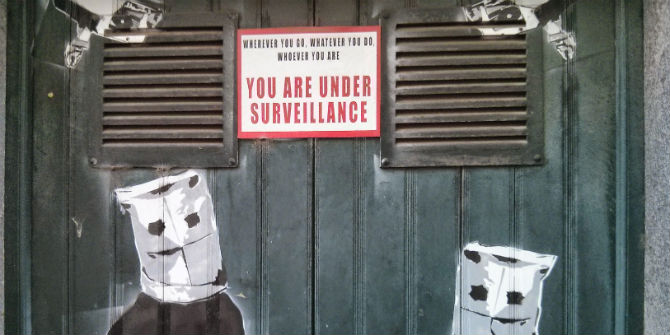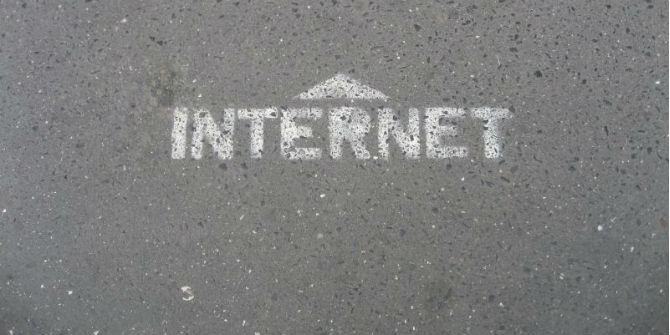Rebecca MacKinnon is the Director of the Ranking Digital Rights Project. In this post, she explains the background to the project, and how the findings will hopefully lead to more research into digital rights in freedom of expression and privacy. A panel discussion on the topic will take place on 19 November, at LSE’s Thai Theatre.
In 2014, more than 213 million people around the world went online for the first time. According to Freedom House, which tracks trends in Internet freedom and openness around the world, these new users have less freedom to speak their minds, freely access information, and organise around civil, political, and religious interests than those who first logged on five years ago. Global Voices’ weekly Netizen Report contains a steady stream of news of bloggers arrested for social media postings and a global proliferation of new laws posing further challenges to digital freedom of expression and privacy. Even worse, a growing number of governments are “censoring information of public interest and placing greater demands on the private sector to take down offending content”, as documented in Freedom House’s 2015 Freedom on the Net report.
Companies can be part of the problem, or part of the solution. Information and communication technology (ICT) companies share a responsibility to respect human rights in their global business operations, as outlined by the UN Guiding Principles for Business and Human Rights. The good news is that a handful of leading ICT sector companies have made at least some public commitments to respect human rights. The bad news is that even the leaders have a long way to go when it comes to implementing commitments to respect users’ freedom of expression and privacy in ways that stand a chance of stemming the rapid and continued erosion of Internet users’ rights and freedoms around the world.
Launched earlier this month, the Ranking Digital Rights Corporate Accountability Index evaluates 16 of the world’s largest Internet and telecommunications companies on their disclosed commitments, policies and practices affecting users’ freedom of expression and privacy. Eight publicly listed Internet companies and eight publicly listed telecommunications companies operating around the world were assessed on 31 indicators across three categories – commitment, freedom of expression, and privacy – drawn heavily from international human rights frameworks, as well as from emerging and established global principles for privacy and freedom of expression. The research revealed a deep need for improvement:
- Only six companies scored at least 50 percent of the total possible points;
- The overall highest score was only 65 percent;
- Nearly half the companies in the Index scored less than 25 percent, showing a serious deficit of respect for users’ freedom of expression and privacy.
On the project’s interactive website you can peruse the analysis of company performance on every indicator, as well as in-depth analysis of every company’s performance. A full narrative report as well as all the raw research data used to compile company scores can all be downloaded here.
The Index is meant to be a diagnostic test, not a certification tool. The fact that certain companies received higher scores than others does not constitute an endorsement. If you drill down to specific indicators, it is clear that some companies that scored well overall performed poorly on certain indicators. For example, while Google received the highest score overall due to its relatively high levels of disclosure about its policies and practices – especially in terms of transparency reporting – it was a laggard on the question “Does the company disclose when and how it shares user information with third parties?”
The results paint a frustrating picture of the extent to which users are left in the dark about how companies’ policies and practices affect their ability to express themselves and access information, or what is collected and known about them by whom under what circumstances. More optimistically, we did find leading practices among some companies that are not household names. For example, while the Korean Internet company Kakao scored fifth overall, it came top in the rankings for eight individual indicators in the Index.
One critique we’ve received of the Index is that it only evaluates disclosure, but doesn’t examine undisclosed company practices, or in other words what is happening inside the black box. This does not mean that we don’t believe the latter isn’t an essential area for research – it is vital that institutions such as the University of Toronto’s CitizenLab are dedicated to carrying out in-depth investigations of company practices that would not otherwise be brought to light. Indeed, we hope that the research community will take the Index findings as a source of research questions for further investigation. At the same time, commitment and disclosure are baseline requirements that society should expect – indeed demand – from companies. Without commitment and disclosure about basic practices affecting our freedom of expression and privacy it is much more difficult to hold companies – and the governments that seek to regulate them – accountable for respecting and protecting our digital rights.
This blog gives the views of the authors, and does not represent the position of the LSE Media Policy Project blog, nor of the London School of Economics.






1 Comments